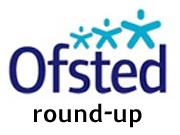Ofsted round-up – This week: Inspectors visit two northern providers

Executive Training Solutions Limited, Newcastle
Summary of grades awarded:
Effectiveness of provision Good: Grade 2
Capacity to improve Good: Grade 2
Achievement and standards Good: Grade 2
Quality of provision Good: Grade 2
Leadership and management Good: Grade 2
Equality of opportunity Contributory grade: Good: Grade 2
Sector subject area:
Customer Services Good: Grade 2
Executive Training Solutions Limited (ETS) is based in Newcastle on Tyne and provides training in the northeast and southeast of England and in Scotland. ETS provides nationally recognised qualifications and bespoke training to meet the needs of employers and adults in the security and licensed retail industry. Established in 2004 to provide specialist training in personal safety, conflict management and physical interventions, ETS obtained its LSC contract for Train to Gain in 2007. The Train to Gain contract has grown rapidly from 51 learners in 2007/08, to the 374 learners enrolled on customer service National Vocational Qualifications (NVQs) at level 2 in 2008/09.
Ofsted has found that the overall effectiveness of the provision is good and that On- and off-the-job training are integrated well and employers contribute to the programme effectively. Support for learners is good with leadership and management also good. ETS has taken effective action to improve success rates and the rate of learners’ progress.
Inspectors reported that ETS has a good capacity to improve, having developed very productive relationships with employers. Effective action has been taken to improve learners’ overall and timely success rates. Managers use the new management information system effectively to monitor learners’ progress and set challenge targets. ETS responds effectively to learners’ and employers’ feedback, although the systems for collection and evaluating feedback are insufficiently systematic. While ETS has a strong focus on improving the learners’ experience, quality improvement processes are insufficiently systematic.
The self-assessment report was found to be broadly accurate and most strengths and areas for improvement matched inspection findings. Staff are involved in the process and some use is made of learners’ and employers’ views. ETS has been cautious in grading its first self-assessment report and many inspection grades were higher. Key strengths include high success rates, good application of skills in the workplace, good development of learners’ skills and a well planned learners programme that meets learners’ and employers’ needs.
Achievements and standards are also good. Timely and overall success rates have improved, as noted in the self-assessment report. The number of learners increased from 51 in 2007/08 to 374 in 2008/09. Learners’ success rates on literacy and numeracy programmes are very high at 100% and 99% respectively. They make good progress and timely success rates are very high.
Business Impact UK Limited, Gateshead
Summary of grades awarded:
Effectiveness of provision Satisfactory: Grade 3
Capacity to improve Satisfactory: Grade 3
Achievement and standards Good: Grade 2
Quality of provision Good: Grade 2
Leadership and management Satisfactory: Grade3
Equality of opportunity Contributory grade: Inadequate: Grade 4
Sector subject area:
Business, administration and law Good: Grade 2
Business Impact Ltd was established in August 2008 as a national training provider following the successful acquisition of QGS Synergy Ltd. Its core business is the delivery of National Vocational Qualifications (NVQs) in business improvement techniques for engineering and manufacturing technologies. It has a national Train to Gain contract with the North East LSC and a smaller Train to Gain contract with the North West LSC. Some 429 learners are on business improvement techniques NVQs, employed at 29 employer sites across seven LSC regions in England.
The overall effectiveness of the provision was found to be satisfactory and also displaying a satisfactory capacity to improve. Ofsted has noted that Business Impact has experienced serious difficulties in its Skills for Life provision, which it withdrew in April 2009 with 17 staff made redundant. Ofsted found that additional learning support is inadequate and in some instances target-setting with learners is weak.
The self-assessment process is satisfactory, with Business Impact completing its first report. Although a range of staff were involved in compiling it, the report does not include learners’ or employers’ views sufficiently. The report is however sufficiently evaluative. Key strengths include very high success rates on business improvement techniques programmes, good skills development, good training, particularly good match of programmes to learners’ and employers’ needs and good leadership with strategic direction.
Achievements and standards are good, although Business Impact did not identify this in its self-assessment report. A full year of success data across all programmes is not yet available. However, current overall success rates for Train to Gain learners are high, with timely success at 75%. For learners on business improvement techniques programmes, overall success rates for Level 2 are very high at 88% and timely success rates are good at 71%. For Level 3 learners, overall and timely success rates are also high at 83% and 80% respectively for 2008/09. The standard of learners’ work is satisfactory.
Natalie Hailes






Responses